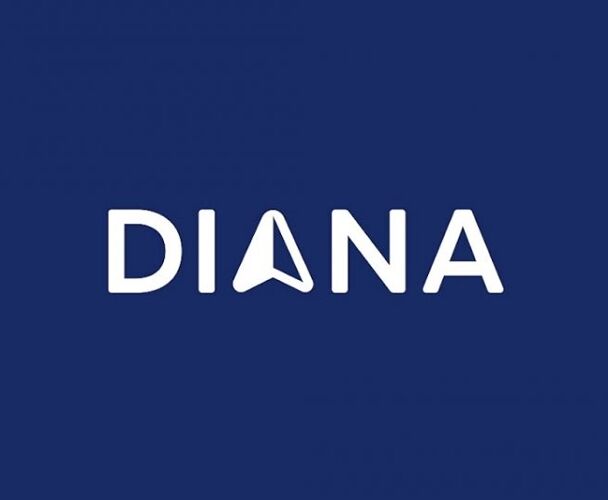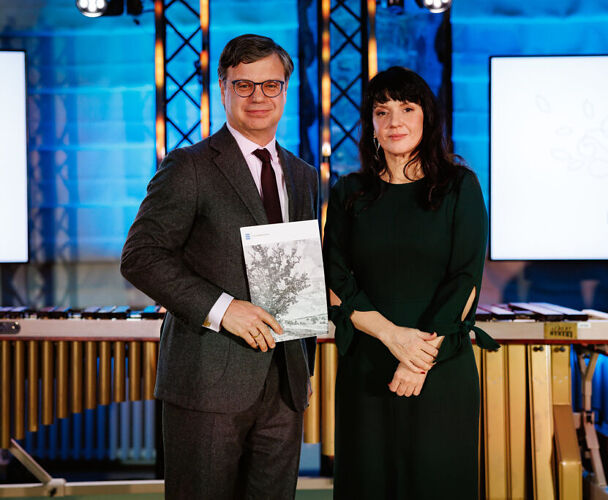In Latvia, arbitration is frequently used to settle disputes, albeit court litigation is still the more prevalent method of dispute resolution. The main advantages of arbitration are seen its efficiency, especially considering the length of court proceedings (on average 3-5 years), confidentiality and flexibility.
Latvia has a rather high number of arbitral institutions. There are more than 50 arbitral institutions registered, although only around 15-20 are actively administering arbitral processes.
The number of cases settled by arbitration in Latvia is comparatively high. Many of such cases are, however, small domestic disputes. At the same time, since the adoption of the Arbitration Law of the Republic of Latvia in 2015 (“Arbitration Law”), the number of enforced arbitral awards has reduced – 1075 arbitral awards enforced in 2014; 420 enforcement requests filed to Latvian courts in 2022.
The Arbitration Law has been amended several times, with the most recent amendments entering into force on 4 July 2024 (“2024 amendments”), introducing a number of notable and long-awaited changes that have been aimed to secure that arbitration framework in Latvia corresponds to the standards of the UNCITRAL Model Law.
| Arbitration Law | The Arbitration Law, adopted on 11 September 2014, entered into force on 1 January 2015. It governs both domestic and international arbitration proceedings seated in Latvia.
In July 2024, the Arbitration Law witnessed a major reform, inter alia, introducing the set-aside procedure, increased court assistance to arbitration and other notable changes. The Latvian Civil Procedure Law contains rules on the setting aside of arbitral awards, recognition and enforcement of domestic and international arbitral awards, as well as provides for rules on court assistance to arbitration.
|
| UNCITRAL Model Law | Although the Arbitration Law does not in all aspects correspond to the formal layout of the UNCITRAL Model Law in form, its substance, following the 2024 amendments, now largely complies with the standards of the UNCITRAL Model Law.
|
| 1958 New York Convention | Yes, Latvia is a member state to the 1958 New York Convention. Latvia acceded to the 1958 New York Convention on 14 April 1992 and it entered into force with respect to Latvia on 13 July 1992.
|
| 1961 European Convention on International Commercial Arbitration | Yes, Latvia is a member state to the 1961 European Convention on International Commercial Arbitration. Latvia acceded to the Convention on 20 March 2003 and it entered into force with respect to Latvia on 18 June 2003.
|
| 1965 ICSID Convention | Yes, Latvia is a member state to the 1965 ICSID Convention. Latvia acceded to the 1965 ICSID Convention on 8 August 1997 and it entered into force with respect to Latvia on 7 September 1997.
|
| Bilateral and Multilateral Investment Treaties | Latvia is a member state to the 1994 Energy Charter Treaty. Latvia acceded to the Treaty on 17 December 1994 and it entered into force with respect to Latvia on 16 April 1998.
Latvia has in force several bilateral investment protection treaties with countries such as Canada, China, Singapore, Iceland, Ukraine, Turkey, Egypt, Vietnam, Armenia, Azerbaijan, Georgia, Kyrgyzstan, Kazakhstan, Moldova, the United States of America, Uzbekistan, and Switzerland, among others. Latvia’s concluded intra-EU bilateral investment treaties have been denounced and terminated. Recently Latvia has denounced its investment treaties also with countries such as Belarus, India, the United Kingdom and Norway.
|
| Key Arbitration Institutions | The Court of Arbitration of the Latvian Chamber of Commerce and Industry (LCCI) is the most well-known and most-often used arbitral institution in Latvia (https://www.ltrk.lv/en/).
|
| Arbitration Agreements | The parties may enter into an arbitration agreement by producing a written arbitration agreement, either in a separate document or within the agreement from which the dispute arises. Arbitration agreement must be concluded in writing.
The 2024 amendments did away with the onerous requirement that an arbitration agreement concluded via electronic means needs to be signed with a secure electronic signature. Now a simple exchange of electronic communications will suffice to prove a concluded arbitration agreement. Furthermore, an arbitration agreement is in writing if it is contained in an exchange of statements of claim and defence in which the existence of an agreement is alleged by one party and not denied by the other. Provided an arbitration agreement has not been amended or revoked by the parties, or declared null and void by the court, parties may not derogate from it and the arbitration agreement remains in effect. Pursuant to the principle of separability, an arbitration agreement is considered to be independent from the rest of the contract in which it is set forth. Rather uniquely, confirming a long-standing Latvian court practice, the Arbitration Law provides that in case of an assignment of a claim, an assignee is transferred solely the right to claim against a debtor, but not the arbitration agreement included in the underlying contract. In practice it means that even if the underlying contract between the assignor and the debtor contains an arbitration agreement, upon assignment of a claim, an assignee may not invoke it and must enforce its rights through courts.
|
| Arbitrability | The Arbitration Law provides a defined list of non-arbitrable subject matters:
insolvency disputes; anddisputes with regard to which the Civil Procedure Law provides for a special procedure (adoption, trusteeship and inheritance, among others).
|
| Jurisdiction | The Arbitration Law codifies the principle of kompetenz-kompetenz providing that an arbitral tribunal has competence to decide on its own jurisdiction and any objections to the existence or validity of the arbitration agreement. A decision on jurisdiction can be rendered at any time of arbitration proceedings. In case of a valid arbitration agreement Latvian courts have an obligation to refer parties to arbitration.
Until 2014 the principle of kompetenz-kompetenz was interpreted and applied by Latvian courts very strictly, providing exclusive right to the arbitral tribunal to rule on its jurisdiction, without the possibility to challenge the arbitral tribunal’s decision before courts. However, following the Latvian Constitutional Court’s ruling in Case No. 2014-09-01, arbitrating parties may submit an application challenging the validity of an arbitration agreements also to Latvian courts. The 2024 amendments extend this court control even further by allowing parties to also challenge an arbitral tribunal’s separate decision on its jurisdiction. Such a challenge, however, does not stay the arbitration proceedings.
|
| Composition of the Arbitral Tribunal | The 2024 amendments introduced a number of important changes. As a result, arbitrators in Latvia are no longer subject to strict appointment and qualification requirements.
Although arbitral institutions in Latvia still have an obligation to maintain a list of arbitrators, arbitrators no longer have to be selected from a closed list only. Parties are free to elect an arbitrator of their choice, irrespective of him or her being included in the list of arbitrators of the arbitral institution. If an arbitrator wishes to be included in the list of arbitrators of a particular arbitral institution or be chosen as an arbitrator by a court (if such a need arises), he or she is still subject to somewhat strict qualification requirements (higher education, flawless reputation, no criminal conviction etc.). Such requirements, however, do not apply to party-elected arbitrators not included in the list of arbitrators of an arbitral institution. The parties are free to agree on the procedure for appointing arbitrators. In institutional arbitration their appointment takes place in accordance with the arbitration rules of the respective arbitral institution, whereas in ad hoc arbitration each party appoints one arbitrator and the two arbitrators thus appointed appoint the third arbitrator. Arbitrators are subject to disclosure of conflicts. The Arbitration Law provides for detailed rules on the arbitrator’s conflict of interest. The 2024 amendments introduced a mandatory statement (form) of impartiality and independence that an arbitrator must fill out before accepting an appointment. During arbitration proceedings arbitrators must remain objective, independent and just. Following the 2024 amendments, Latvian courts may assist in appointing, replacing and hearing challenges to appointed arbitrators.
|
| Court Involvement in Arbitration Proceedings | Prior the 2024 amendments, Latvian courts provided only limited assistance to arbitrations seated in Latvia (hearing challenges to the validity of arbitration agreements, issuing interim measures prior arbitration proceedings and deciding recognition and enforcement requests).
However, following a recent Latvian Constitutional Court’s judgement in Case No. 2022-03-01 of 24 February 2023, whereby the non-existence of the set-aside mechanism was declared unconstitutional, the Latvian legislator took the necessary steps to introduce not only the set-aside mechanism, but also other necessary forms of court assistance, reflecting the UNCITRAL Model Law. Latvian courts now assist in (i) the appointment and replacement of arbitrators, (ii) hearing challenges to arbitrators; (iii) hearing challenges to arbitral jurisdiction and the validity of arbitration agreements, (iv) issuing interim and provisional measures (both prior and during arbitration proceedings), (v) the gathering of evidence and hearing of witnesses (if necessary), (vi) hearing challenges to arbitral awards, and (vii) deciding recognition and enforcement requests.
|
| Interim Measures | Arbitral tribunals seated in Latvia are entitled to take any procedural decisions they deem appropriate. The most common form of interim measures issued by arbitral tribunals is a request for evidence. Interim measures issued by arbitrators are not, however, enforceable in courts.
Following the 2024 amendments, Latvian courts not only have the power of granting a provisional relief in the form of securing the claim both prior and during arbitration proceedings (by one of the means of securing a claim under Article 138 of the Civil Procedure Law), but also have the power of issuing orders for interim protection (imposing one of the means under Article 1381 of the Civil Procedure Law).
|
| Confidentiality | If parties have not agreed otherwise, arbitration proceedings in Latvia are confidential, i.e., hearings are held in camera, information of the fact of arbitration is not published or shared with other persons, except where parties agree otherwise.
|
| Evidence & Hearings | Arbitration in Latvia generally takes place in accordance with the principle of adversarial proceedings. Each party must prove the facts on which it relies as the basis for its claims or objections. Evidentiary means in arbitration may consist of submissions of the parties, documentary evidence (written documents, audio recordings, video recordings etc.), factual evidence, witness testimonies and expert opinions.
The Arbitration Law does not specifically regulate disclosure or discovery in arbitration except for the general principle that the arbitral tribunal, upon a motivated request of a party, may order the other party to submit relevant evidence. If the party thus ordered refuses to provide particular evidence, the arbitral tribunal may admit as proven the facts, which the requesting party sought to prove by referring to the requested documentary evidence. Taking of evidence is generally governed by the Arbitration Law and the IBA Rules on the Taking of Evidence in International Arbitration or any other guidelines are rarely applied. Provided parties have not agreed on written proceedings or, even in case they have, any of the parties so requests, an arbitral tribunal shall hold an oral hearing. During the hearing the arbitral tribunal acquaints the parties with submissions, documents and other information, which it has obtained, as well as with expert opinions and other evidence. Parties are free to submit expert evidence. Expert witnesses can be summoned, heard and cross-examined during hearings. Unless the parties have agreed otherwise, the arbitral tribunal may itself appoint one or more expert witnesses to advise on certain issues.
|
| Arbitral Awards | The Arbitration Law provides that an arbitral award shall be issued within 14 days of the hearing of the dispute on the merits.
There are no atypical requirements to the rendering of a valid arbitral award in Latvia. An award shall be made in writing and shall be signed by all members of an arbitral tribunal. The award must also indicate, inter alia, the reasons on which it is based, the remedies/claims granted and dismissed, arbitration fees and costs and their allocation between the parties, and the date of the award as well as the seat of arbitration. Although the Arbitration Law provides for mandatory elements that must be included in the award, among which also the grounds (reasons) for the award, parties are free to waive the requirement for an award to provide reasons. An arbitral tribunal, either of its own motion or following any of the parties’ request, may also correct any clerical or typographical errors, or any errors of similar nature in the award. Interim arbitral awards are not enforceable in Latvia. If a partial order finally resolves a certain part of a dispute, it may be enforced in Latvia as any other final arbitral award.
|
| Costs | Unless the parties have agreed on the awarding (distribution) of costs in the arbitration agreement, arbitral tribunals seated in Latvia have a rather broad discretion in relation to the awarding of costs.
It is therefore within the discretion of the arbitral tribunal to decide which party bears the costs and in what proportion. In practice arbitral tribunals often hold that costs are borne by the unsuccessful party, albeit there have also been cases where arbitral tribunals order that each party bears its own costs.
|
| Challenges to Awards | For long, Latvia did not provide arbitrating parties with the opportunity to challenge arbitral awards before national courts. This major drawback was declared unconstitutional by the Latvian Constitutional Court in its judgement in Case No. 2022-03-01 of 24 February 2023, holding that the non-existence of the set-aside mechanism violated parties’ right to a fair trial. Following the conclusions of the Latvian Constitutional Court, as of 1 March 2024, the challenging of arbitral awards is possible also in Latvia.
Generally, applications for challenge must be submitted within 30 days from the date the award was rendered. Applications are heard by the competent first instance courts, with a limited possibility to submit an appeal. Appeal is allowed only with respect to a negative decision, i.e., if the court rejects the challenge. The court’s decision to set aside an arbitral award is not subject to appeal. Thus, Latvia provides a somewhat limited two-tier set-aside procedure. No further appeal to the Supreme Court is possible. The challenge proceedings are rather swift. The first instance court takes its decision within 20 days from the expiry of the term for submission of response (20 days from the sending of the application to the defendant), and on the basis of the submitted documents only, without holding an oral hearing, unless it deems that a hearing is necessary. Appeal must be submitted within 10 days from the receipt of the decision. As to the grounds for set-aside, Latvia follows the UNCITRAL Model Law’s “4+2” approach differentiating between grounds that are to be proved by the applicant and grounds that may be invoked by the court ex officio. Appeal on merits is not permitted.
|
| Recognition and Enforcement of Awards | The New York Convention and the Civil Procedure Law govern the recognition and enforcement of arbitral awards in Latvia.
If the arbitral award is not enforced voluntarily in time set by the arbitral tribunal, the concerned party is entitled to apply to the competent first instance court requesting to enforce the arbitral award and to issue a writ of enforcement (a court document upon which the court bailiff commences enforcement proceedings). An application must be accompanied by originals or duly authenticated copy of the award and the arbitration agreement. The award-debtor is given 20 days to provide its response to the request for recognition and enforcement of the arbitral award. The first instance court takes its decision within 20 days from the expiry of the term for submission of response, and on the basis of the submitted documents only, without holding an oral hearing. In domestic arbitration the court’s decision on the recognition and enforcement of the award may not be challenged, unless the court has refused recognition and enforcement in which case the decision may be challenged before the respective regional court within 10 days from the receipt of the decision. Further appeal to the Supreme Court is not possible. As to the grounds for refusing recognition and enforcement, Latvia follows the UNCITRAL Model Law’s “5+2” approach differentiating between grounds that are to be proved by the applicant and grounds that may be invoked by the court ex officio. In case recognition and enforcement of a domestic arbitral award is refused, depending on the particular ground invoked, a dispute may either be resubmitted to arbitration or submitted for resolution before ordinary jurisdiction courts. Foreign arbitral awards are recognized and enforced in Latvia in accordance with Latvia’s concluded international agreements, in particular, the 1958 New York Convention and, where necessary, the applicable Civil Procedure Law provisions. An application for recognition and enforcement of an arbitral award, accompanied by originals or duly authenticated copies of the award and the relevant arbitration agreement, is to be submitted for recognition and enforcement to the respective first instance court. No statutory time-limits are provided for the award-debtor to give its explanations, however, usually the term is set at 30 days. Applications for the recognition and enforcement of foreign arbitral awards in Latvia are always heard holding an oral hearing. A foreign arbitral award may be refused recognition and enforcement in Latvia only in cases provided for under Article V of the 1958 New York Convention. Decision of the first instance court may be challenged before the respective regional court. Further appeal to the Supreme Court is not possible.
|





